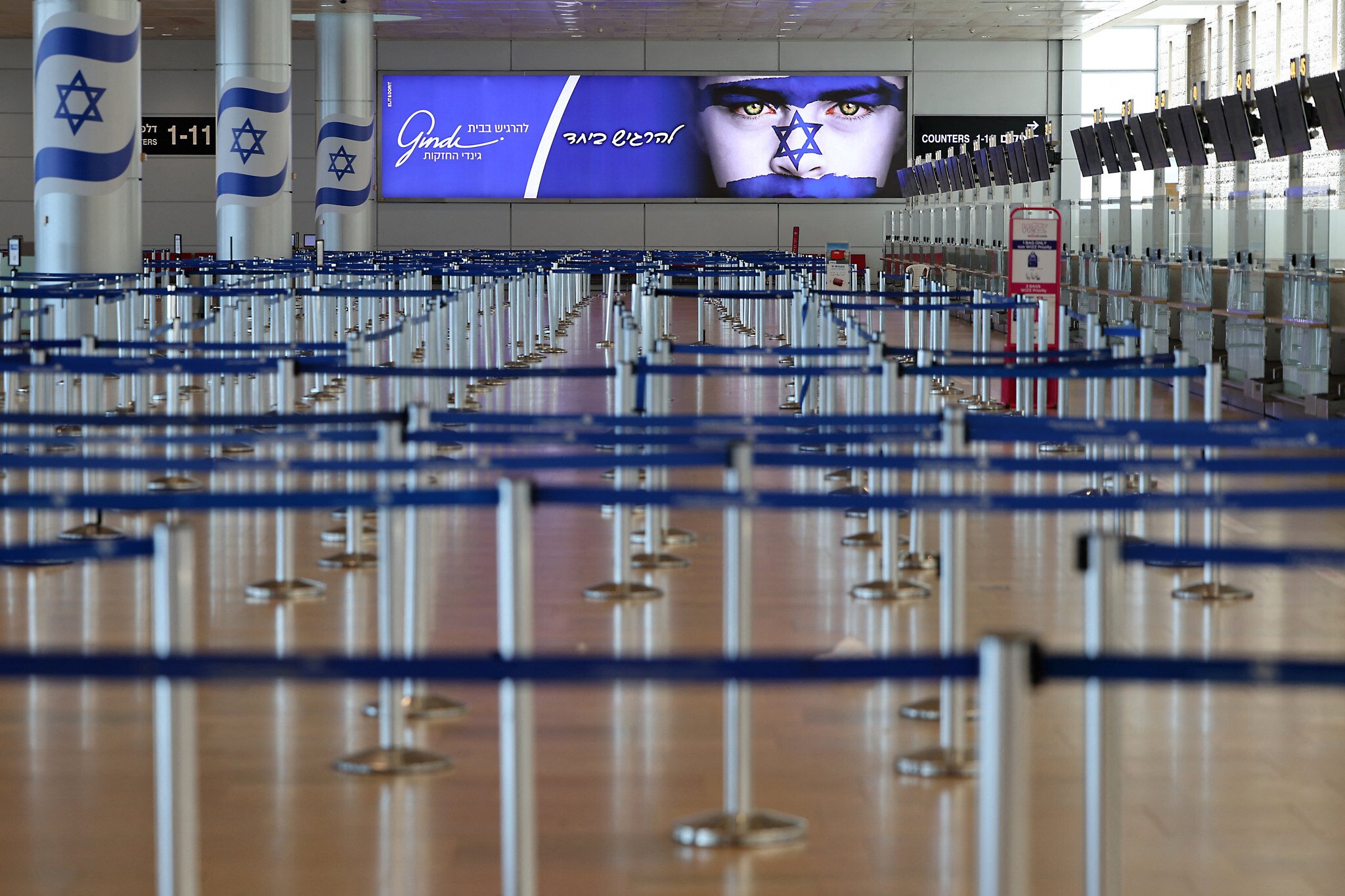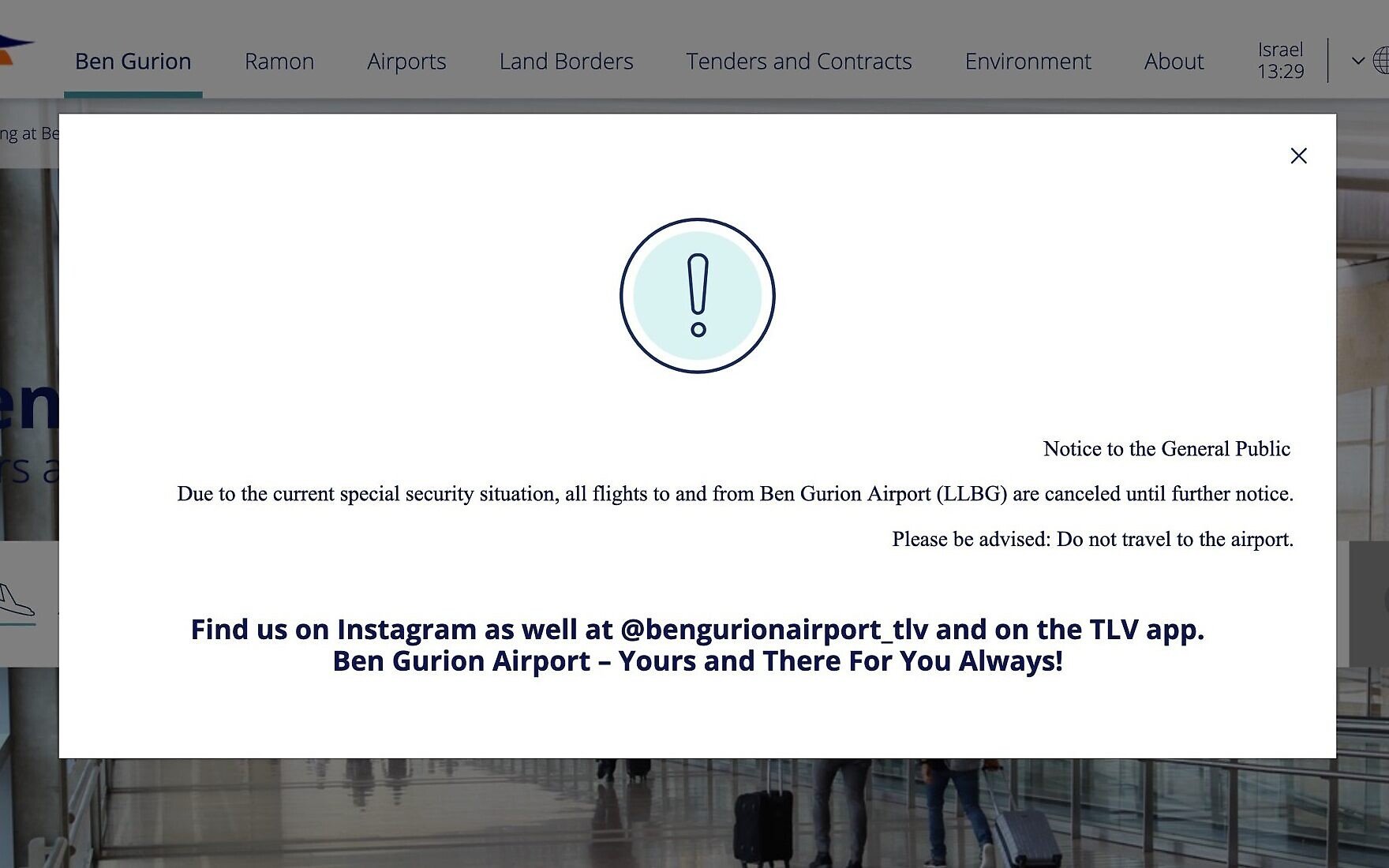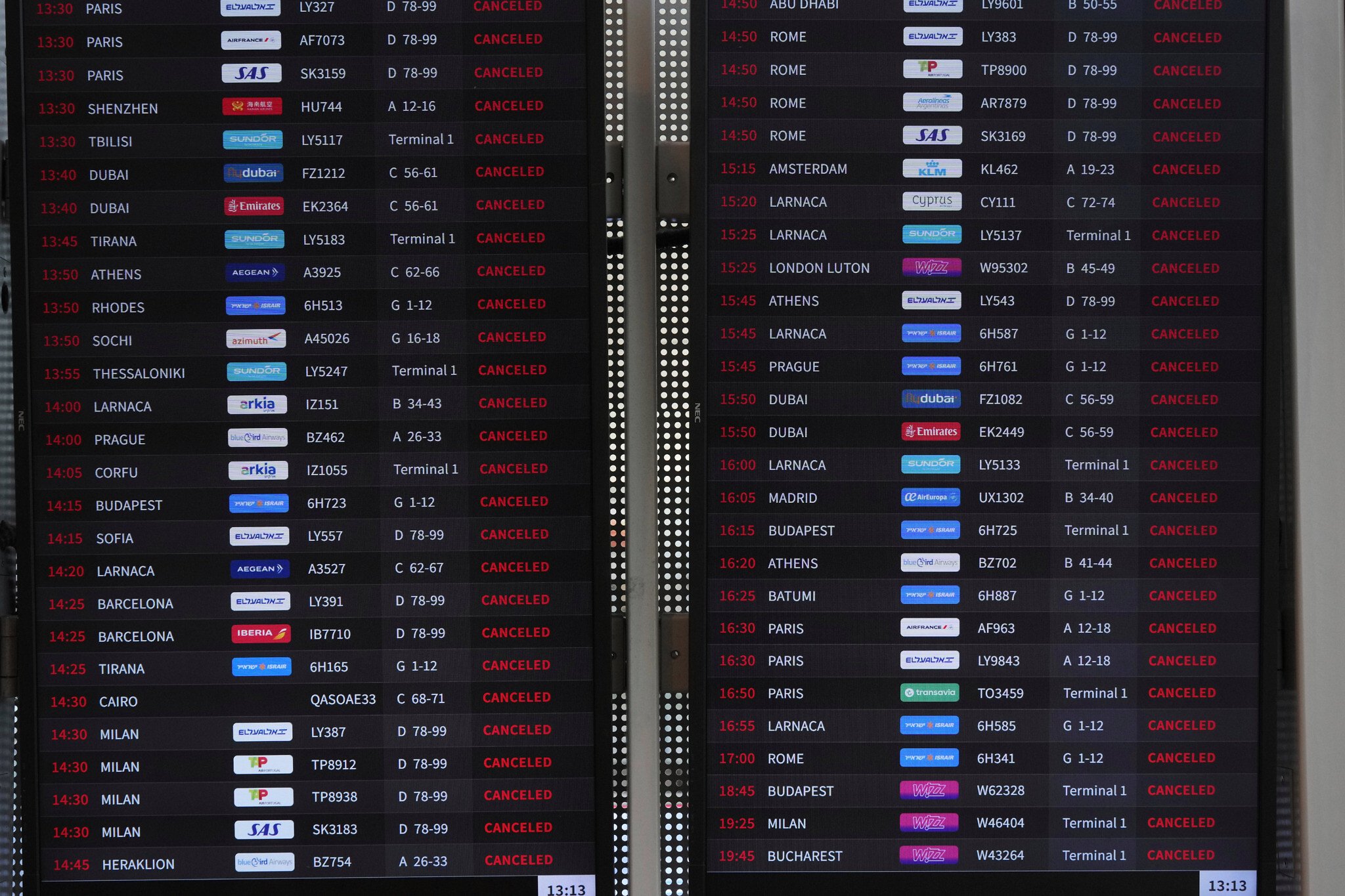



Israel’s Ben Gurion Airport remained closed to all arrivals and departures and was to remain so “until further notice,” officials said Friday, as Israel carried out waves of strikes against Iran and its nuclear program.
Meanwhile, Israel’s three major airlines moved their fleets out of the country to prevent them from being targeted in an Iranian attack.
Israel was thus effectively cut off from international air travel.
The regional escalation led multiple foreign airlines to announce that they were canceling flights to and from Israel, and it was unclear when services would resume.
Taking into account previous repeated cancellations since October 2023, and the potential for full-blown war between Israel and Iran, it seemed likely that many airlines would stay away from Israel for the foreseeable future.
In addition to Israel, Iran, Iraq, Jordan and Syria closed their airspaces. Hundreds of flights were forced to turn around or reroute amid the strikes.
Channel 12 reported that Ben Gurion Airport was expected to stay closed for the next 3-4 days. However, a spokesman for the Airports Authority declined to confirm the assessment, telling The Times of Israel that no official statement or estimate had been issued.
Early on Friday Israel said it targeted Iran’s nuclear facilities, ballistic missile factories and military commanders at the start of what it warned would be a prolonged operation to prevent Tehran, which vows to destroy Israel, from building nuclear weapons.

Iranian airspace was closed until further notice, according to state media and notices to pilots.
FlightRadar data showed airspace over Iran, Iraq and Jordan was empty, with flights directed towards Saudi Arabia and Egypt instead.
About 1,800 flights to and from Europe had been affected so far on Friday, including approximately 650 cancelled flights, according to Eurocontrol.
Air India’s New Delhi-Vienna and Mumbai-London flights were about to enter Iranian airspace when Israel launched its attack, forcing the planes to turn back to their point of origin, according to aircraft tracker Flight Aware.
A London-New Delhi flight had just entered Iranian airspace and was rerouted over Iraq before arriving in India one hour late, according to FlightAware.
Air India diverted or called back a total of 16 flights between India and London and cities in Canada and the United States “due to the emerging situation in Iran.”
Emirates, the Middle East’s largest airline, cancelled flights to and from Iraq, Jordan, Lebanon and Iran after Israel launched the strikes.
Qatar Airways, the country’s national carrier and one of the Middle East’s largest, said it had “temporarily canceled flights to Iran and Iraq due to (the) current situation in the region.”

The Air France-KLM group said it was forced to cancel flights to and from Tel Aviv until further notice, “due to the security situation in Israel and the closure of airspace.”
“We are constantly monitoring developments and will update accordingly as soon as it is possible to resume operations,” it said in a statement. Passengers can contact customer service to change flight dates or receive a refund in accordance with the company’s policy.
Russia’s aviation authority Rosaviatsiya instructed Russian airlines not to fly “in the airspace of Israel, Jordan, Iraq and Iran,” or use airports in Israel and Iran.
It said the restrictions will stay in place until June 26 or until further notice.
Following “assessments of the situation,” the Lufthansa Group – which includes the airlines Lufthansa, SWISS, Austrian Airlines, Brussels Airlines and Eurowings – said it was updating its flight schedule in the Middle East, and halting services to Tel Aviv through July 31 at least.
Due to “operational reasons,” it added, the group was halting SWISS flights to and from Tel Aviv until the end of the summer season, and through October 25.
It also suspended flights to and from Tehran until July 31.
In the United Arab Emirates, Abu Dhabi airport warned that “flight disruptions are expected through today (Friday)” as a result of the Israeli strikes.
Dubai’s airport also announced flight delays and cancelations due to the closure of airspaces in Iran, Iraq and Syria.
Hungarian low-cost carrier Wizz Air informed passengers about flight cancelations and disruptions, citing “ongoing regional developments.”

Many global airlines had halted flights to and from Tel Aviv weeks ago after a missile fired by Yemen’s Iran-backed Houthi rebels towards Israel on May 4 landed near the airport. Some had since resumed operations, while others had stayed away.
In addition, Israeli airlines El Al, Arkia and Israir announced they were moving their planes out of the country to avoid them being targeted in an expected Iranian retaliation.
The planes were flown out without passengers, said a spokesperson for Ben Gurion Airport.
Israir said it was evacuating and relocating its aircraft from the airport, adding this was part of a contingency plan developed over the past few days.
El Al said it was moving aircraft out of Israel “to our destinations,” and Arkia declined to say where the planes were headed.
Flight tracking data showed a number of planes leaving Tel Aviv.
A number of Israir flights went to Cyprus and several El Al aircraft were flown to airports in Europe, Flightradar24 data showed.
Israel’s “Wing of Zion,” the official state plane, also took off from Ben Gurion Airport, according to flight tracking sites, and was later seen landing in Greece.
Prior to Iran’s April 13, 2024, missile and drone attack on Israel, Wing of Zion was flown out from Nevatim Airbase, which was later targeted by Iran.

Since the October, 7, 2023 Hamas assault on southern Israel and the subsequent spreading of the conflict to Lebanon, Yemen and Iran, commercial aviation has on several occasions shared the skies with short-notice barrages of drones and missiles across major flight paths — some of which were reportedly close enough to be seen by pilots and passengers.
No planes have been hit by the salvos.
Globally since 2001, six commercial aircraft have been shot down unintentionally and there have been three near misses, according to aviation risk consultancy Osprey Flight Solutions.
Last year, planes were shot down in Kazakhstan and in Sudan. These incidents followed the downing of Malaysia Airlines flight MH17 over eastern Ukraine in 2014 and of Ukraine International Airlines flight PS752 en route from Tehran in 2020.
